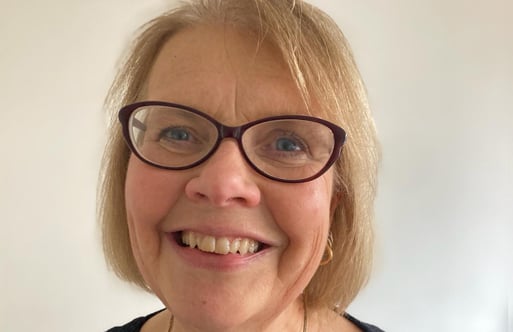Teachers, parents, and pupils have experienced learning from home before and we’ve started to see a shift in the way that remote lessons are being made available and accessed. We have seen a change too in the proportion of young people continuing to attend school, with a broader classification of critical workers and schools now able to bring students into schools who have tech challenges.
The number of young people being taught at school is much higher during this lockdown - up to 50% in some schools. Many teachers are juggling in-school provision alongside facilitating home learning with parallel groups of students.
Schools, overall, have reviewed and modified their approach to remote teaching and in-school provision - in many secondary and FE settings we are seeing a significant, almost wholesale, shift to timetabled live lessons and reports from schools show that uptake from students is far higher than in Lockdown One, even in areas of socio-economic disadvantage.
The Department for Education in England has clarified its expectation of five hours of structured lessons at secondary and three hours at primary; and provided detailed guidance on how teachers can access technical support and remote lesson planning - mostly led by teachers, for teachers. The devolved administrations have issued their own guidance and expectations in respect of time spent learning during periods of disruption.
Mixed picture
In primary schools, it is much more of a mixed picture, with some teachers introducing lesson starters and plenary sessions live, and others increasing the amount of teacher-led video content, along with the introduction of live social connection sessions amongst classes, such as a daily story-time.
And through the BCS backed Computing at School (CAS) network, we have continued to see huge demand from teachers for support in technology platforms such as Microsoft Teams and Google Classroom. We are supporting thousands of teachers to explore how to use these platforms for live lessons and to share practical tips on what works in the context of teaching and learning.
Of course, all of this puts more pressure on households to have access to adequate connectivity, appropriate devices, and the digital competence to use them. Juggling working from home alongside three children at different stages of education is a reality in many households right now.
If the household has sufficient devices to enable each child to access their learning activities and has adequate broadband connectivity to support those activities, then it has the foundation for success. The issue is that for many, if not most, this is simply not a reality.
Initiatives across the UK
BCS Members may have seen the Government-led initiatives to improve access. In England there’s get help with technology with over £400m invested, the provision of 1.3m laptops and 54,000 4G wireless routers for pupils; help to get online in Scotland and a specific £25m investment to support digital inclusion amongst learners.
There's Stay safe. Stay learning. in Wales and loan scheme plans in Northern Ireland to help with devices, internet access and support to provide remote education and access to children’s social care during COVID-19. This, as well as donations from charitable organisations and the public to some schools, is really helping to ensure as many young people as possible can fully engage in learning from home. There is a huge effort in schools to get devices set up and shipped out to those who need them most.
The BBC has recently launched Give a Laptop to promote details of companies and charities who can help get devices to pupils by taking donations from the public and organisations - refurbing them and sending them out to those that need them most.
But when pupils do get a provided device some schools are reporting the household don’t have access to WiFi, so there is still a lot to be done to improve the holistic response needed to resolve the whole issue.
Digital divide
ONS and Ofcom estimate that 2% of households with school-age children live in a household that is not online (227,000 - 559,000 children) and that around one million children only have access to the internet via a mobile phone.
Accessing learning from home is impossible without reliable and sufficient connectivity, an adequate device and appropriate software, as well as the digital competence to be able to use the tech. Without this basic infrastructure, any pupil’s ability to engage in learning is severely limited, which widens inequality.
It is vital that we achieve ubiquitous access for all. It is simply impossible to engage in learning without the foundation of adequate connectivity. Yes, we need devices in the hands of teachers and learners; and yes, we need them to have access to online platforms and resources, as well as the skills to access them – but this is all fruitless if we can’t get everyone connected.
BT’s Lockdown Learning Support Package is a great example of an industry response to the issue. The package includes free unlimited mobile data for those families and carers supporting children with no internet access, free WiFi vouchers for schools and charity partners for access to BT WiFi Hotspots, as well as zero- rating of some of the most popular educational websites designed to support home learning. Plus, there’s up-to-date online educational resources, tech tips and digital skills with the BT Skills for Tomorrow programme.
We welcome the support by Government and industry to provide devices, to lift data caps and offer mobile data packages for the most disadvantaged groups. BCS has called for all educational websites to be exempt from mobile data charges to help further, and it’s great to see that BT is leading the way with this, with the exemption for access to BBC education initially - and with more to follow. We urge other providers to follow suit.
We work very closely with BT on our shared endeavour to upskill the next generation with digital skills and capability through the Barefoot computing project. Since 2014, we have reached the majority of schools in the UK - working with the teachers of over 2.8 million primary pupils, sparking their interest in digital skills and supporting them to build knowledge and confidence - this is a great foundation on which to build.
Barefoot empowers primary school teachers to deliver the computing curriculum with engaging cross-curricular lessons, resources, free workshops (both face-to-face and online) and helpful online guides. Online and offline home learning content is also available to support learning beyond the classroom.
During Lockdown One we had really positive engagement with Barefoot home learning activities, and we are moving in step with teachers to bring new live lesson content to help support and inspire young people and their teachers. And new resources too, including fun interactive online learning games as well as activities children and parents can do together offline - offering a balance between screen time and non-screen time with great unplugged activities.
BCS is part of the consortium behind the National Centre for Computing Education, providing training, teaching resources and community support for teachers. Through the Oak National Academy, teachers, parents and pupils can access our virtual computing lessons.

















